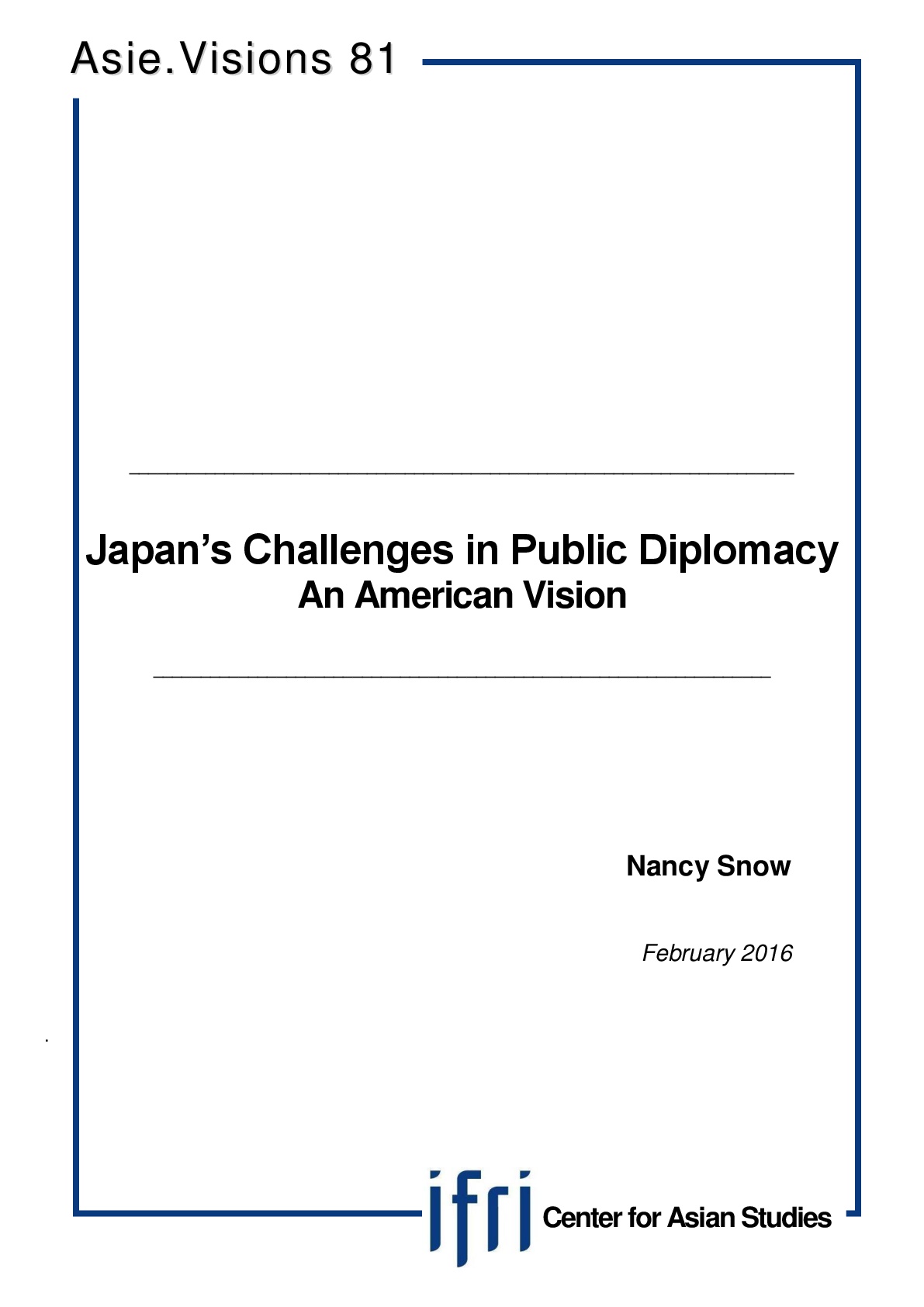Japan's Challenges in Public Diplomacy, An American Vision

Japan’s public diplomacy (PD) profile rests almost exclusively on the promotion of its cultural soft power. Today, in the complex geopolitical setting of Asia, in which national rivalries are reviving competing wartime history narratives and territorial disputes, this approach is no longer sufficient to advance Japan’s own national interests and gain favorable opinion abroad. Under the Prime Minister Abe, Japan has begun to transform and upgrade its public diplomacy. However, the country is still facing a number of challenges.

First, Northeast Asia is a complicated region to navigate: despite strong economic interdependence, countries are jockeying for influence, and the competition among national narratives is fierce. Second, Japan has a mixed image: the Cool Japan brand full of cute idols, anime and pop music has to coexist with the darker figure of a more nationalist Japan that aims to normalize its military status and reinterpret in a rosy way its war history. Third, Japan has yet to develop efficient tools to communicate with the world. If Shinzo Abe were successful in giving a new impetus to develop a truly global public diplomacy, developing new tools and narratives, his legacy is still mixed.
The paper suggests five paths Japan could follow to raise its international image and better communicate its story to the world. First, Japan should go beyond political personality in promoting its public diplomacy. Second, it should expand communication skills and public diplomacy study in its education system. Third, its PD should target not only foreign governments, but also people. Fourth, Japan should be careful to increase information sharing about itself. Fifth, national narrative and PD tools should be strengthened in a systemic manner.
Nancy Snow is the first public diplomacy professor in Japan, Pax Mundi Professor of Public Diplomacy, Kyoto University of Foreign Studies, where she is establishing Japan’s first academic initiative in global public diplomacy. She holds a Ph.D. in International Relations from the School of International Service, The American University in Washington, D.C. She has been a public diplomacy scholar-practitioner for over two decades, with two Fulbright fellowships (Germany, Japan) and an Abe Fellowship at Keio University. Snow worked in public diplomacy at both the State Department and the U.S. Information Agency as a Presidential Management Fellow.
Download the full analysis
This page contains only a summary of our work. If you would like to have access to all the information from our research on the subject, you can download the full version in PDF format.
Japan's Challenges in Public Diplomacy, An American Vision
Related centers and programs
Discover our other research centers and programsFind out more
Discover all our analyses
RAMSES 2024. A World to Be Remade
For its 42nd edition, RAMSES 2024 identifies three major challenges for 2024.
France and the Philippines should anchor their maritime partnership
With shared interests in promoting international law and sustainable development, France and the Philippines should strengthen their maritime cooperation in the Indo-Pacific. Through bilateral agreements, expanded joint exercises and the exchange of best practices, both nations can enhance maritime domain awareness, counter security threats and develop blue economy initiatives. This deeper collaboration would reinforce stability and environmental stewardship across the region.

The China-led AIIB, a geopolitical tool?
The establishment of the Asian Infrastructure Investment Bank (AIIB) in 2016, on a Chinese initiative, constituted an attempt to bridge the gap in infrastructure financing in Asia. However, it was also perceived in the West as a potential vehicle for China’s geostrategic agendas, fueling the suspicion that the institution might compete rather than align with existing multilateral development banks (MDBs) and impose its own standards.
Jammu and Kashmir in the Aftermath of August 2019
The abrogation of Article 370, which granted special status to the state of Jammu and Kashmir (J&K), has been on the agenda of the Bharatiya Janata Party (BJP) for many decades.






